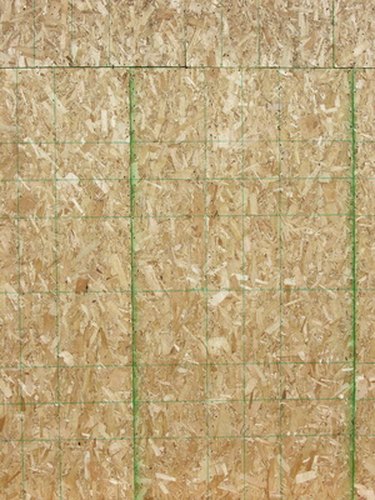
Plywood is the most common type of subflooring. Plywood comes in a variety of thicknesses, beginning at 1/8 inch and increasing to 1 inch. The thickness needed for subflooring depends on the type of floor that will go on top and the primary purpose for the subfloor. In some cases, being a support structure is most important, while in others it is the smoothness, noise insulation or durability.
Support Structure
Video of the Day
Subfloor goes between the joists, or boards, framing the floor. The subfloor provides a support structure for the flooring that will go on top of it, and to be successful, the subfloor needs to be strong enough to support the flooring. A 3/8-inch subfloor is the bare minimum needed to be a good support. For heavier floors, such as hardwood, something closer to 9/16 of an inch is better.
Video of the Day
Smooth Surface
A smooth surface is necessary for a subfloor. A subfloor that is less than 1/2-inch thick will dimple or cup in the middle over time. Those changes in the subfloor will cause problems for the actual flooring, especially for vinyl or tile.
Noise Insulation
Older homes with wooden floors often creak over time. This creaking is from a subfloor that is not thick enough to do its job. Though there are some ways to reduce this creaking, adding a subfloor layer is the only real option to fix the problem. The creaking comes from the subfloor wearing down or nails poking through an inadequate subfloor. The subfloor needs to be at least 1/2-inch thick to reduce creaking.
Lasting Results
Over time, all subfloors will age. They will begin to show wear from people walking on them, and moisture in the air will begin to degrade the materials. If you think that the flooring will remain for a long period of time, such as two decades or more, then a thicker subfloor will hold up better.